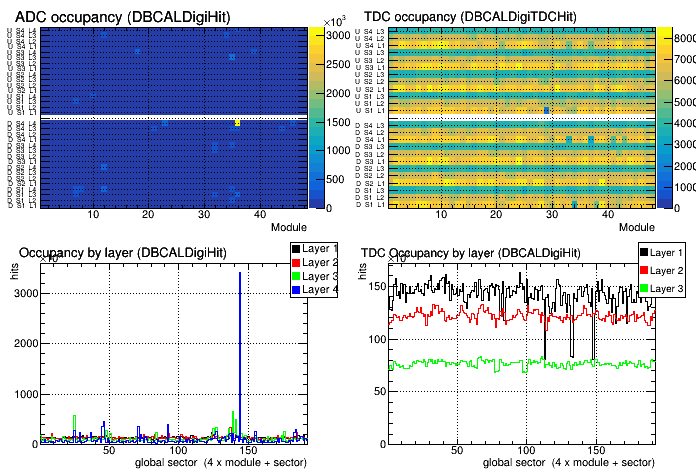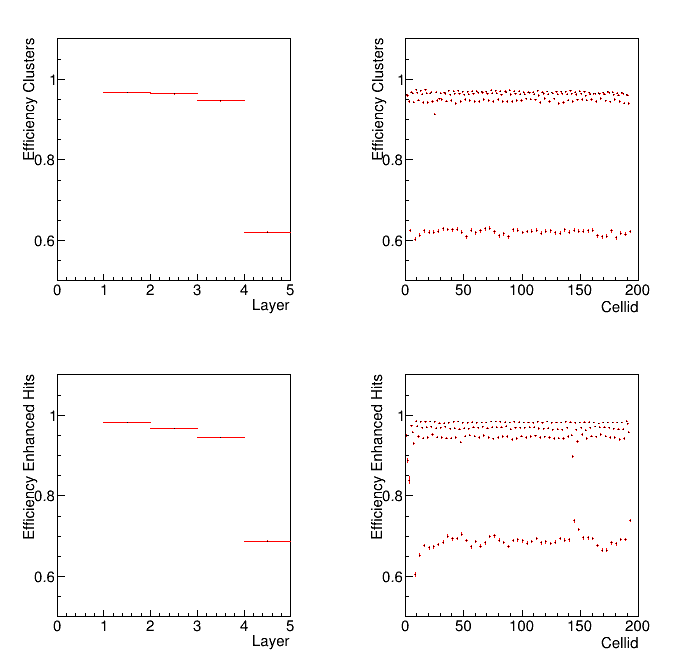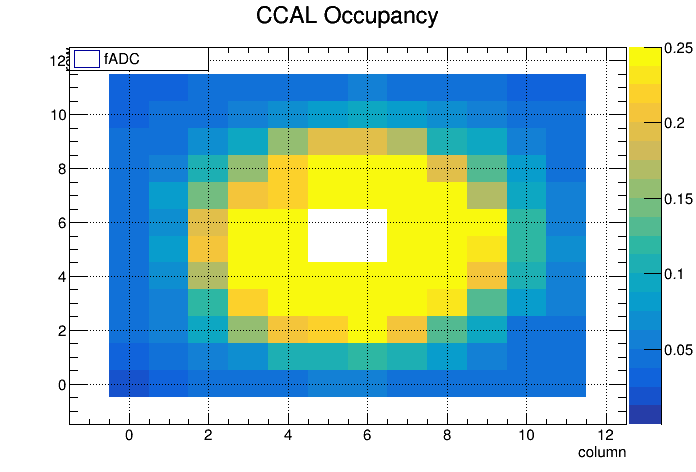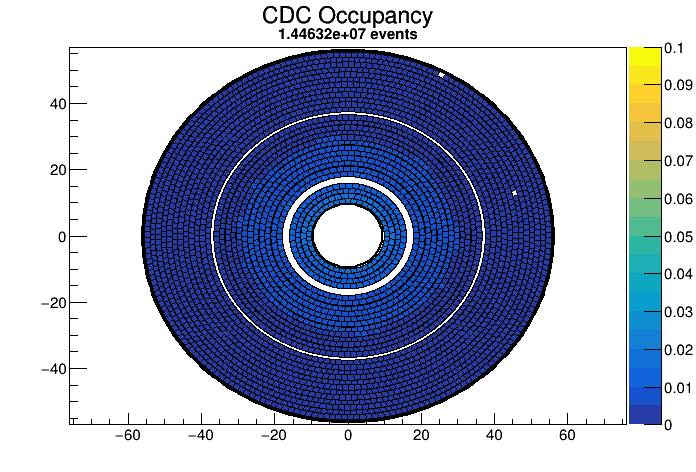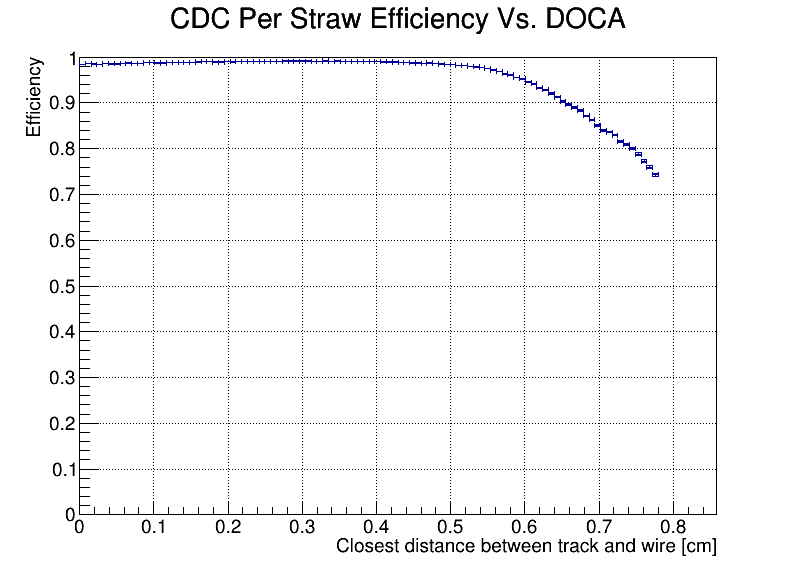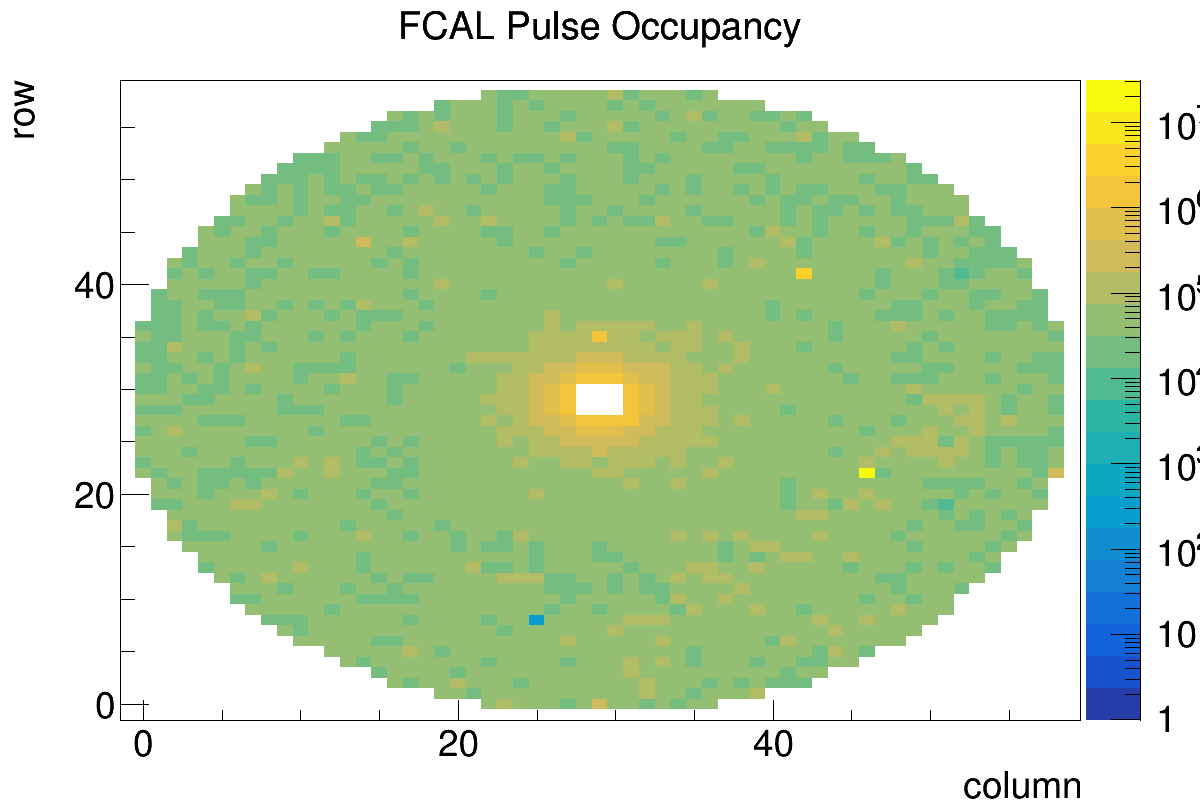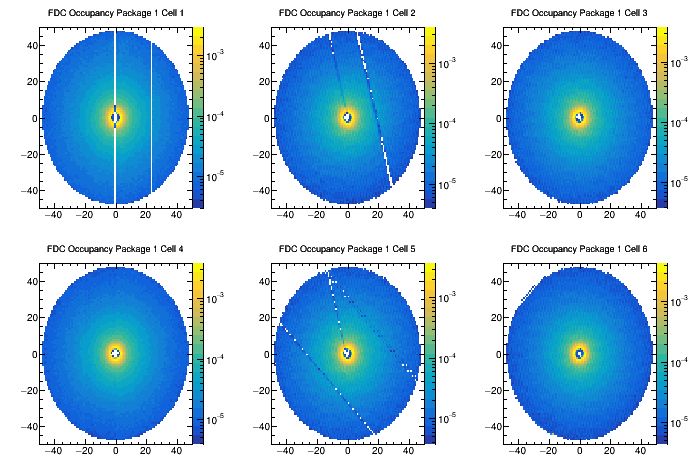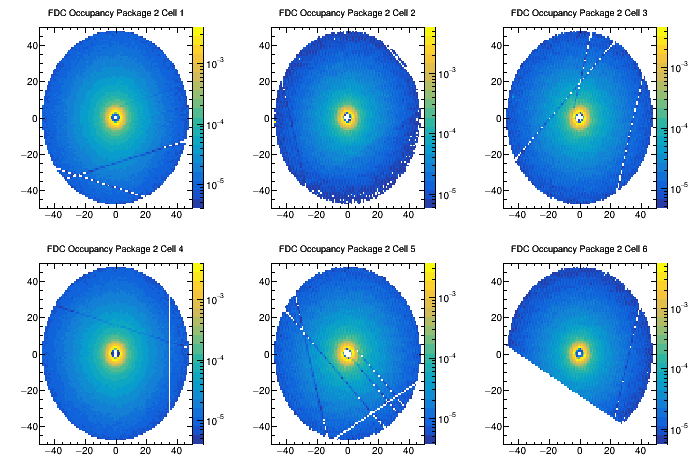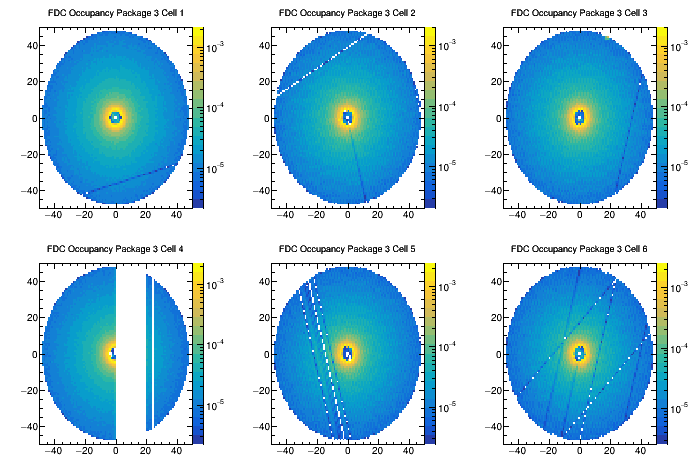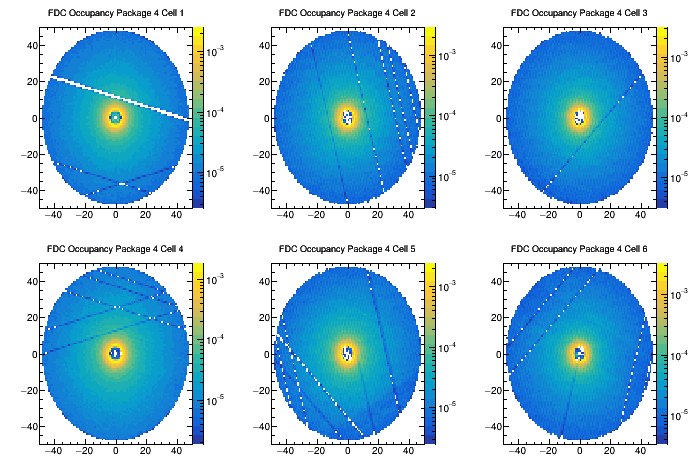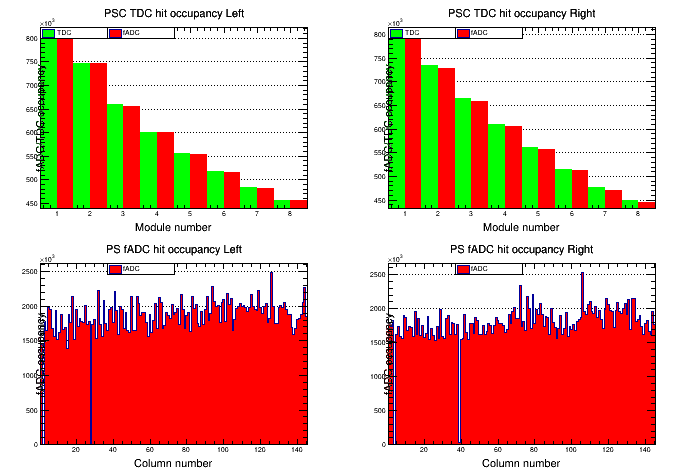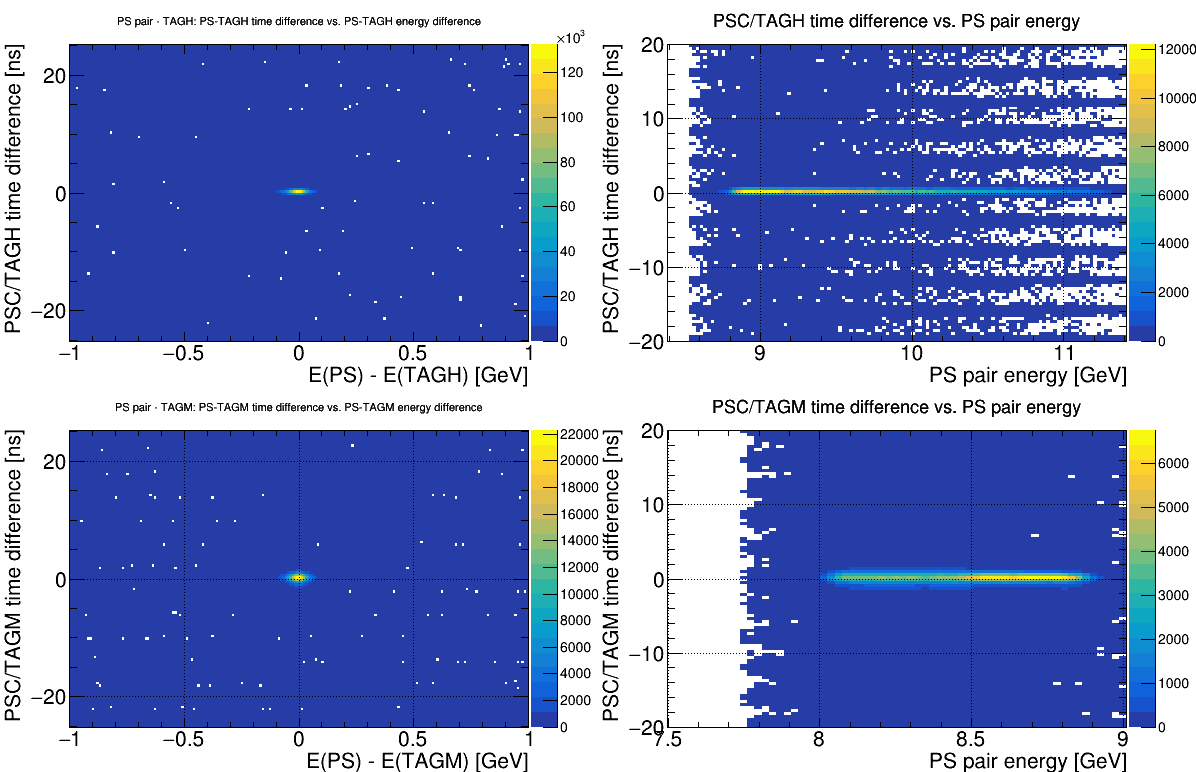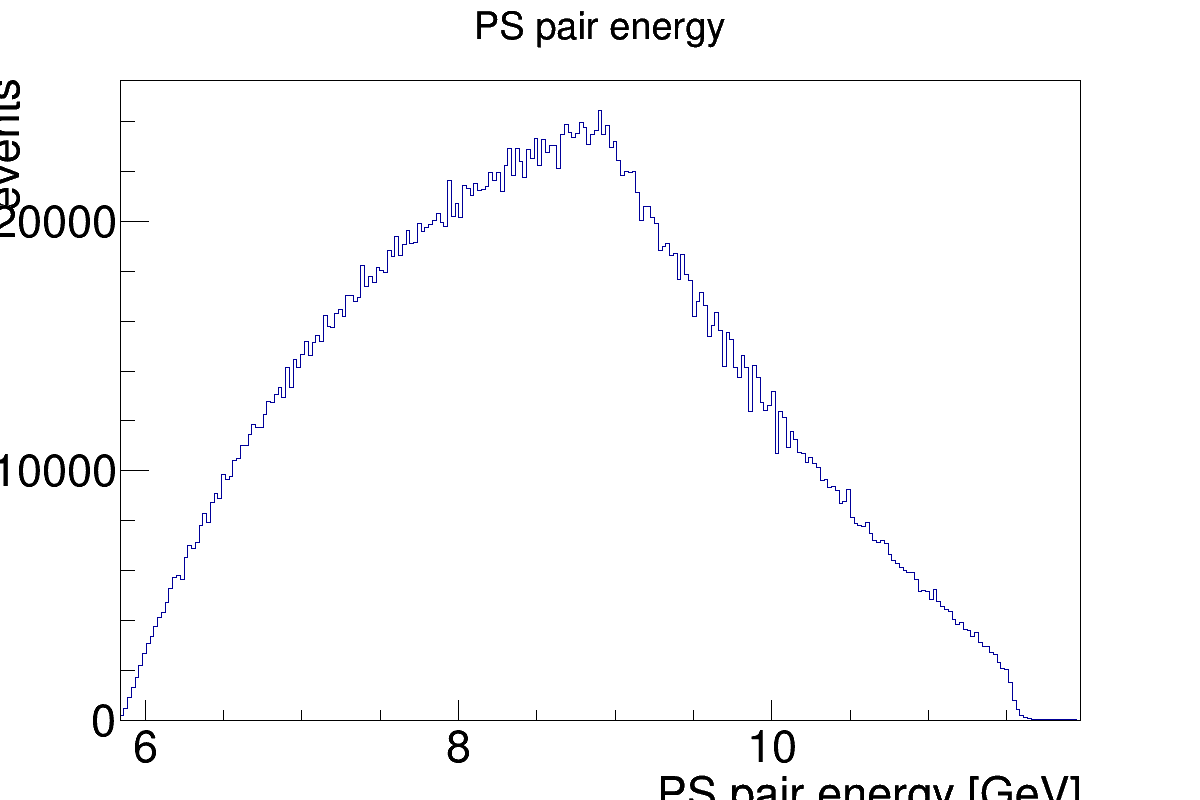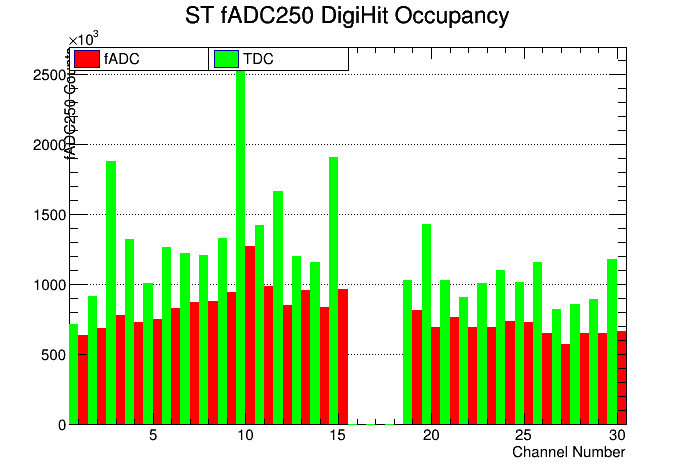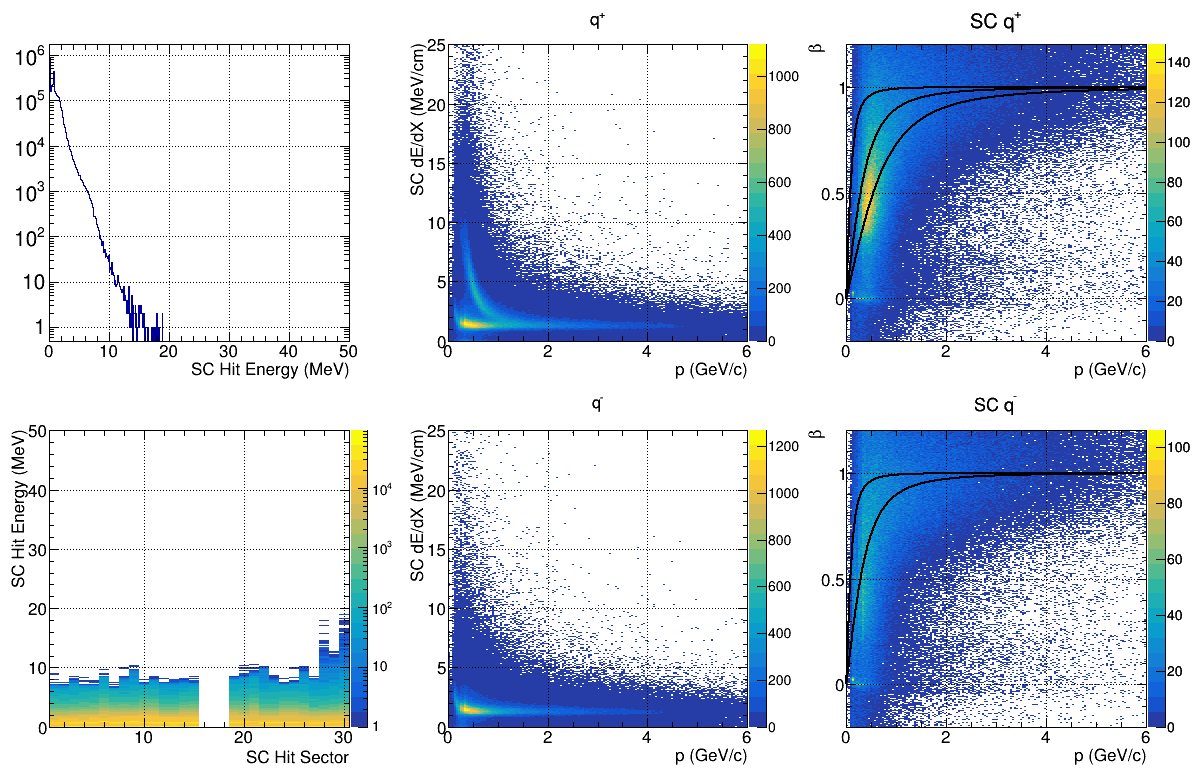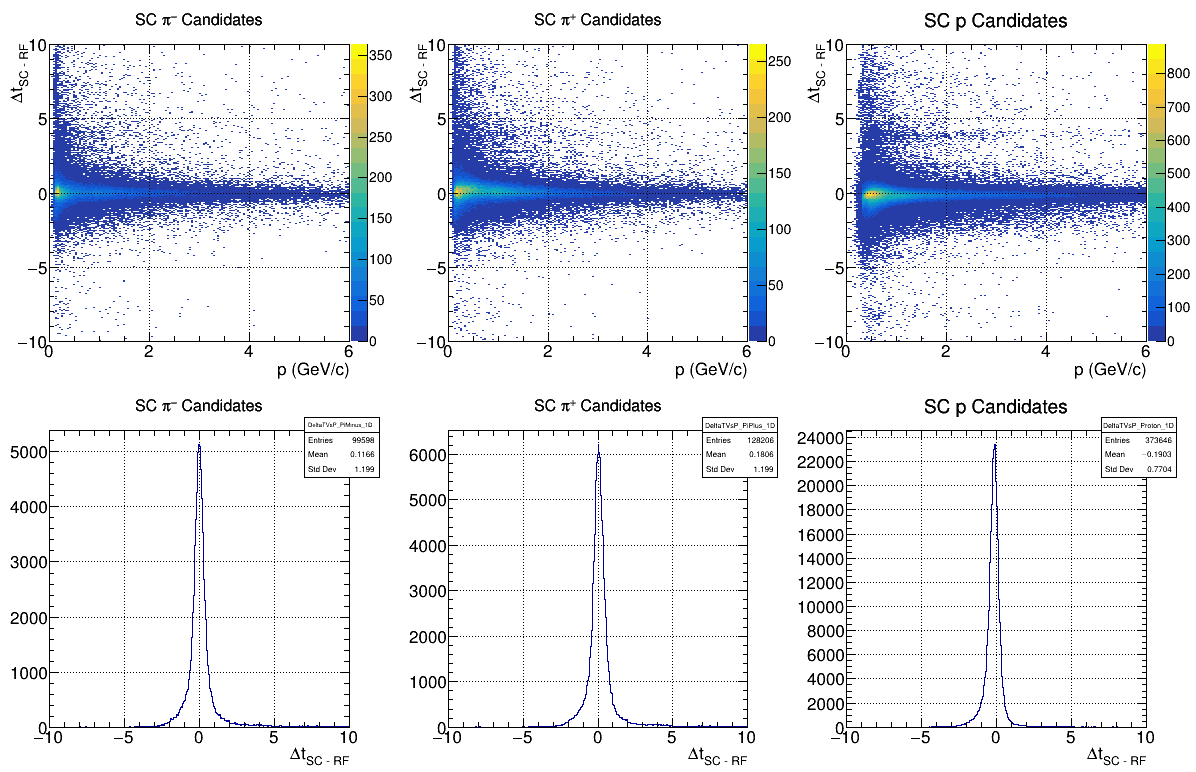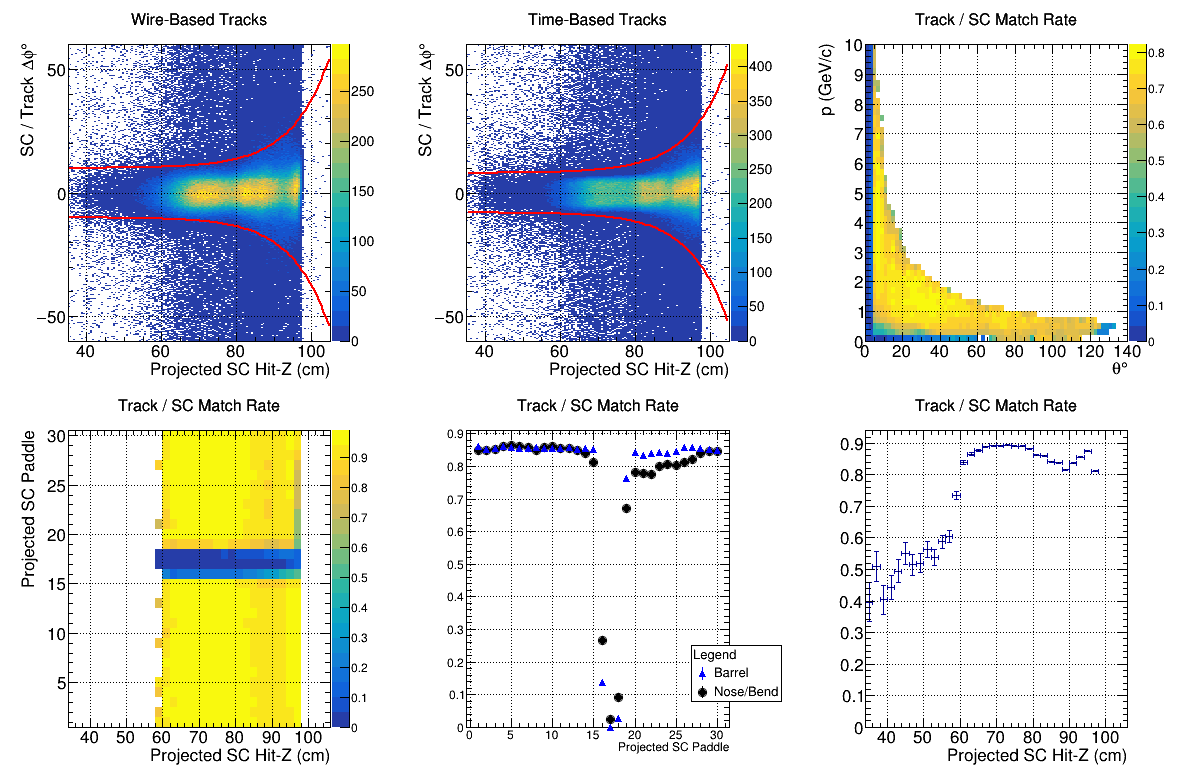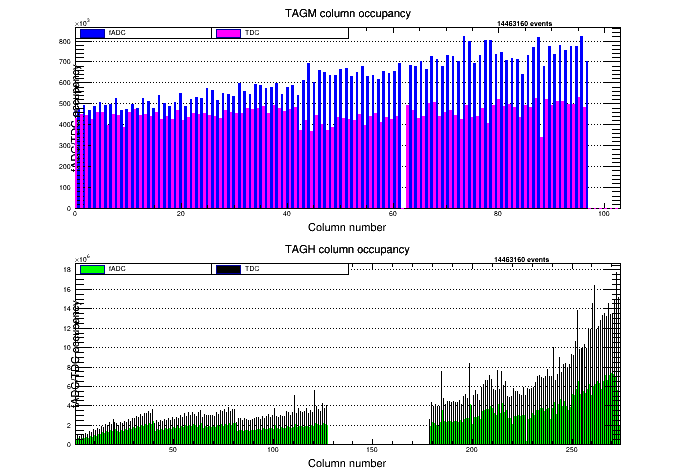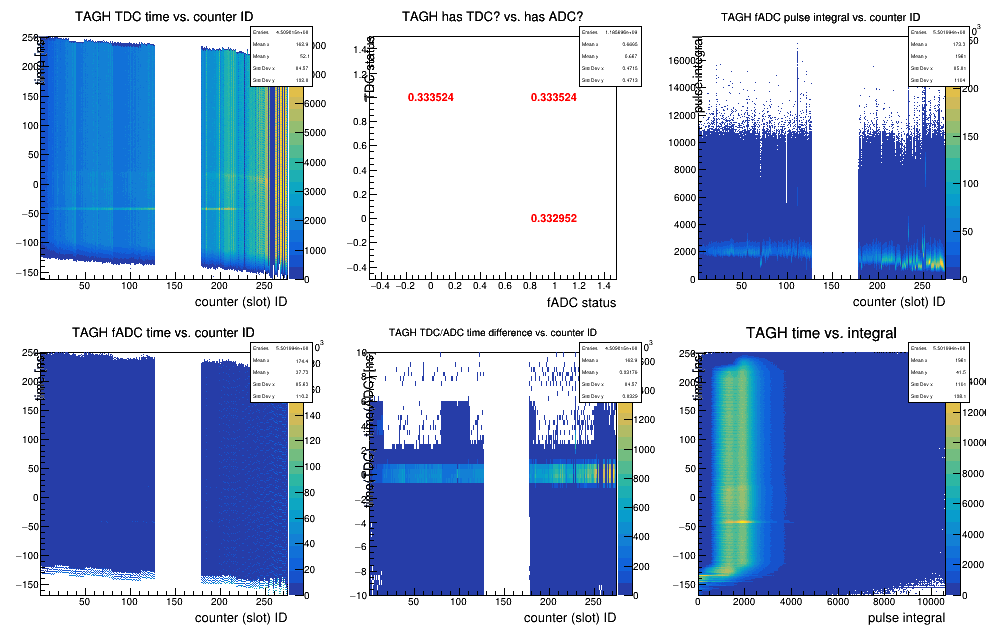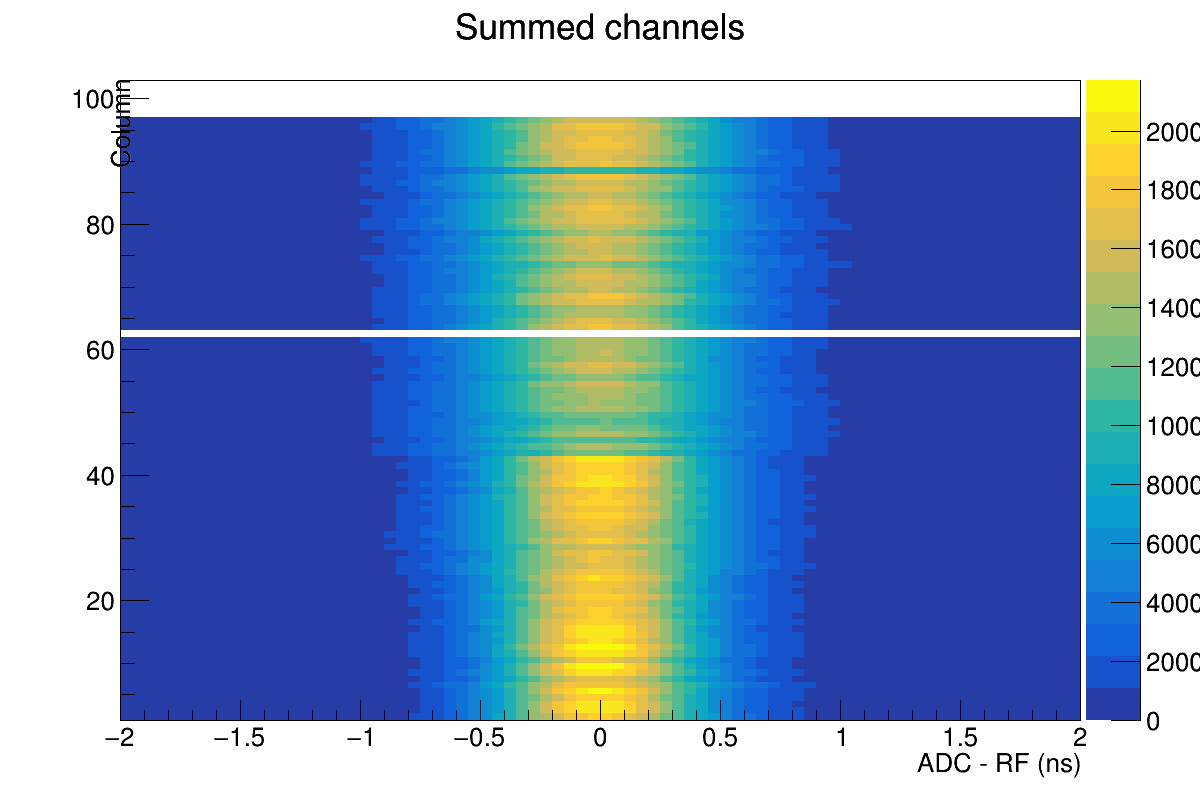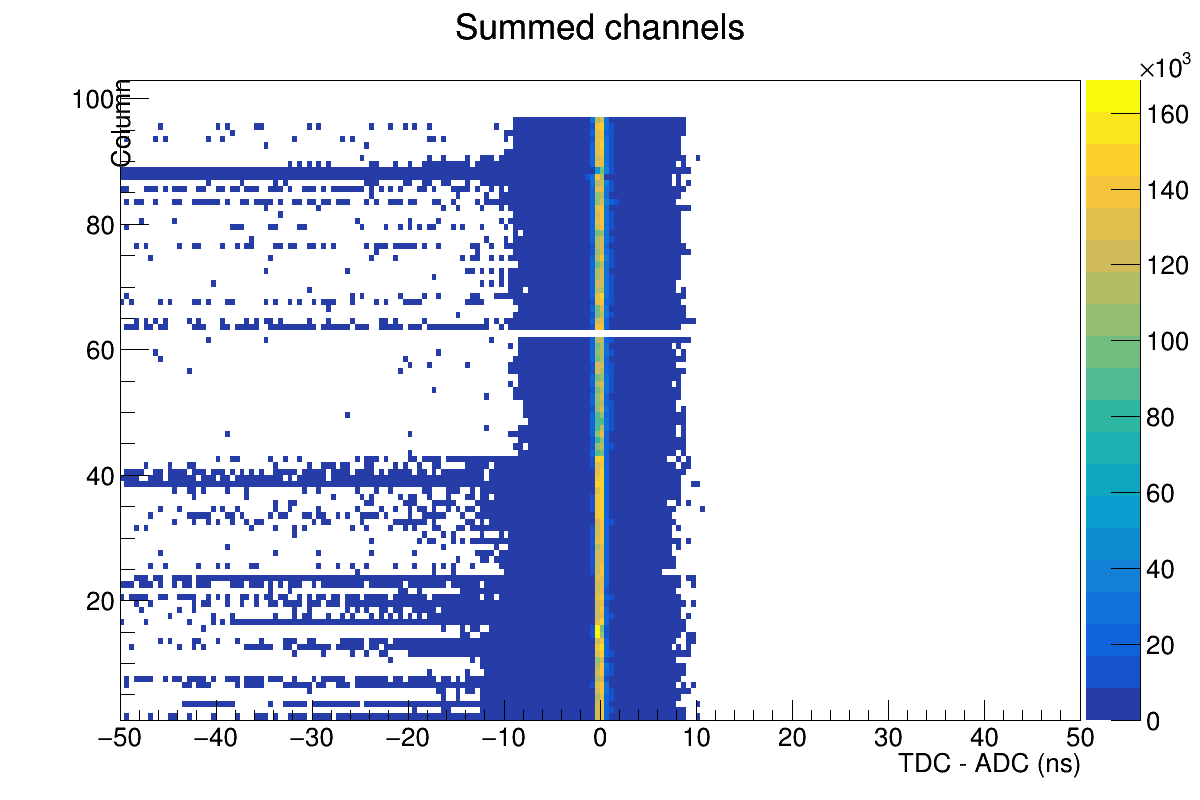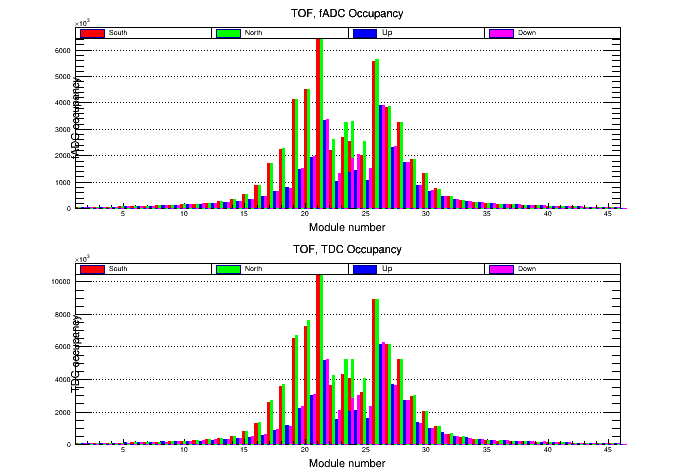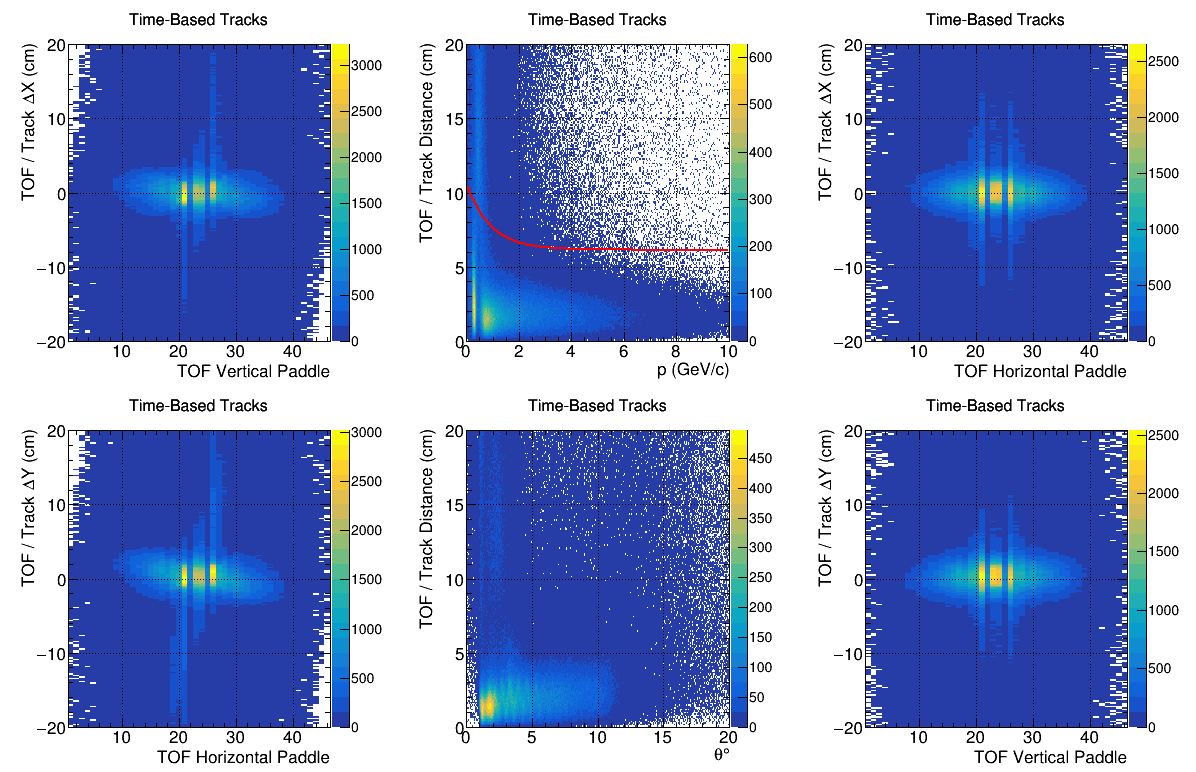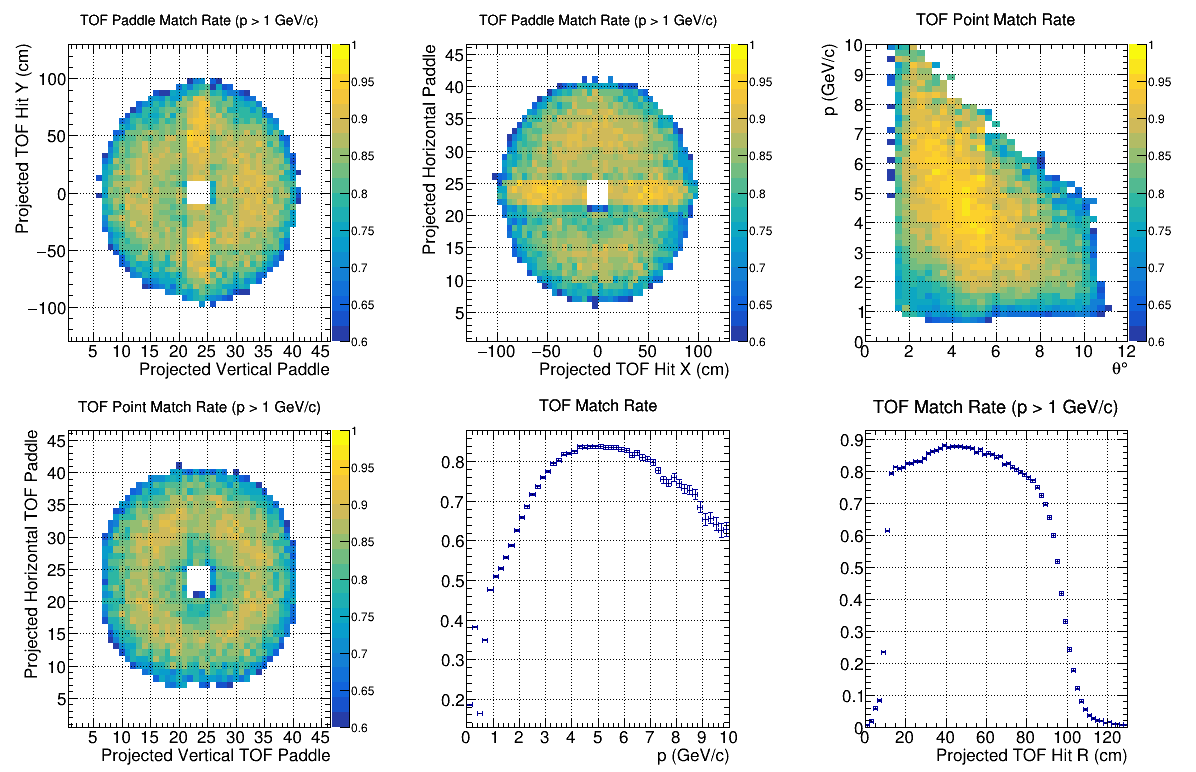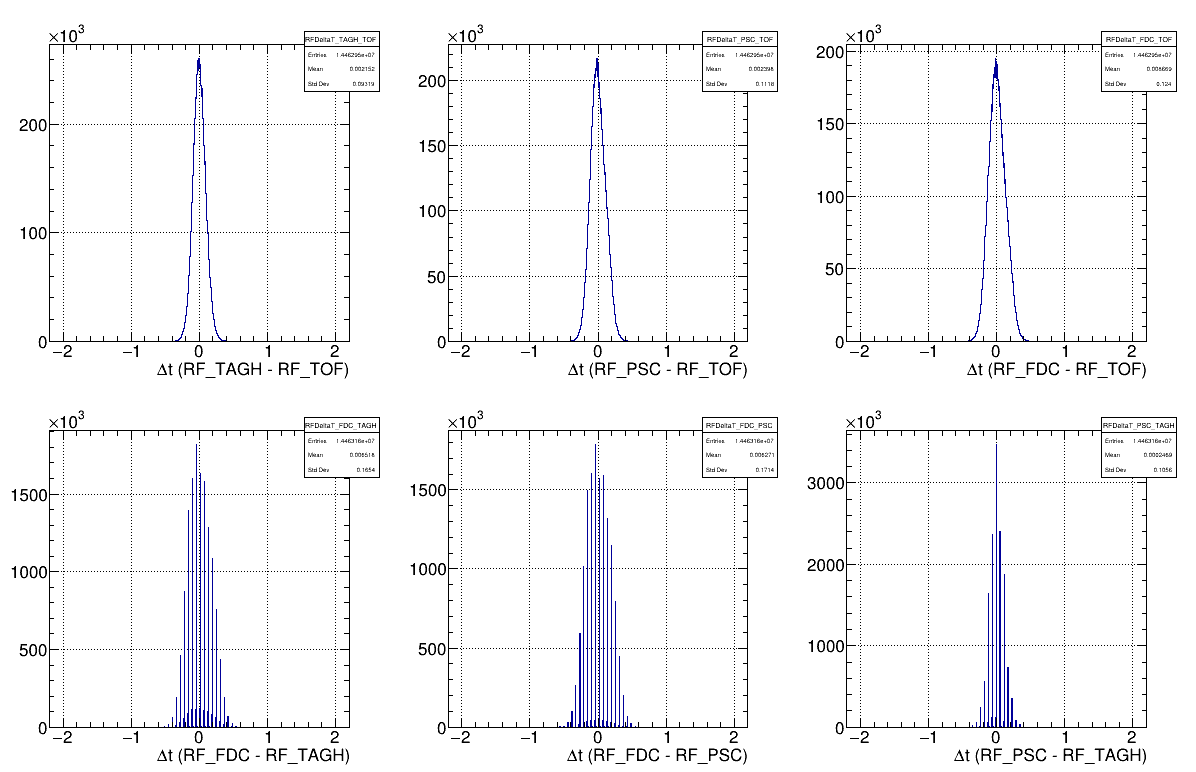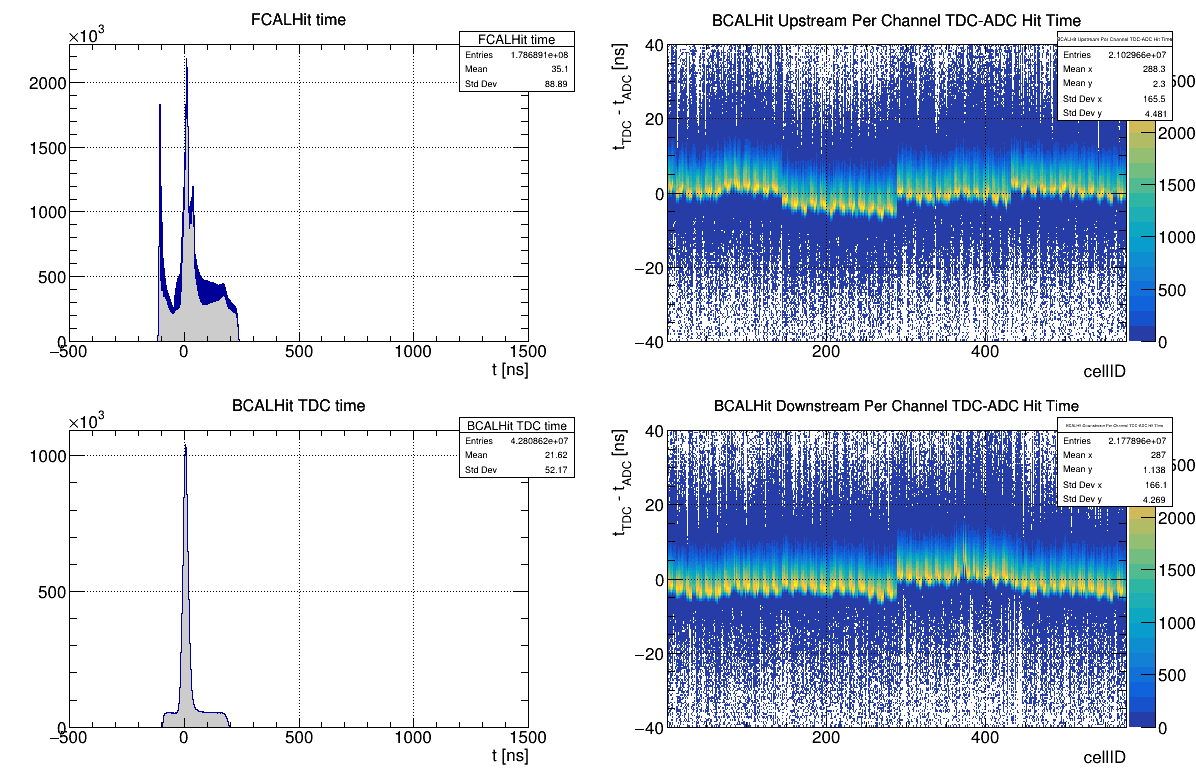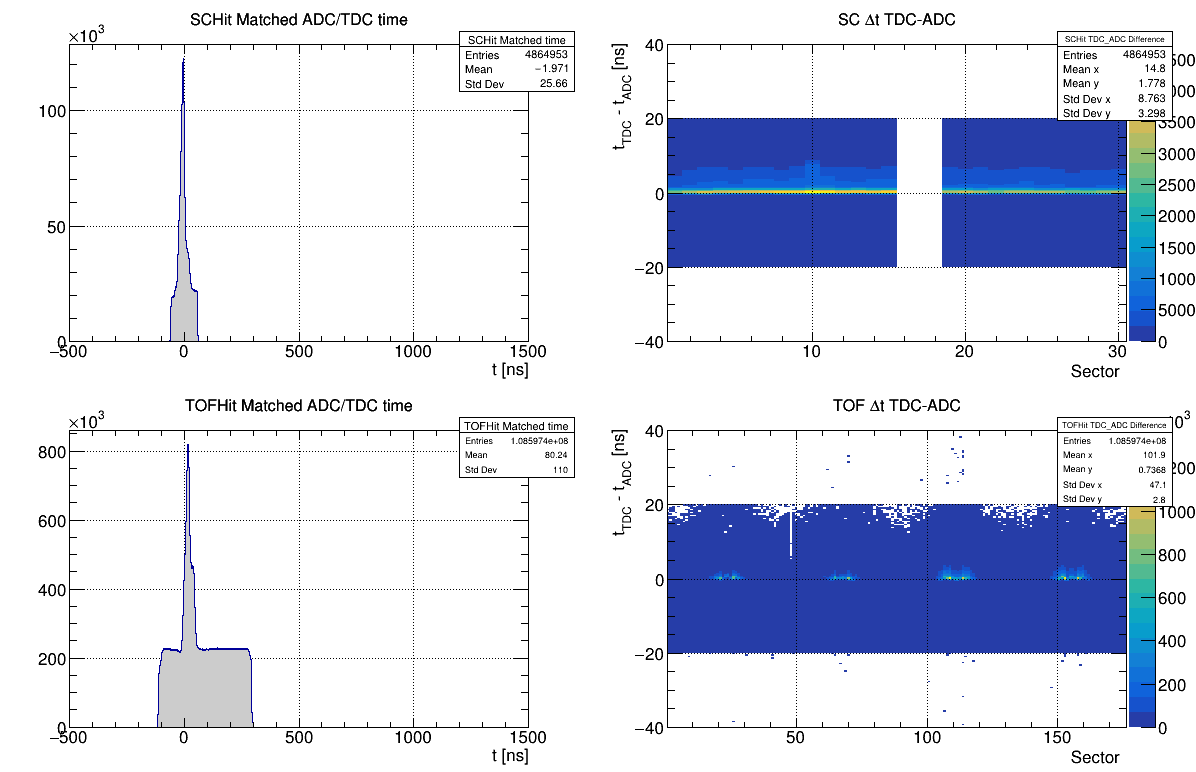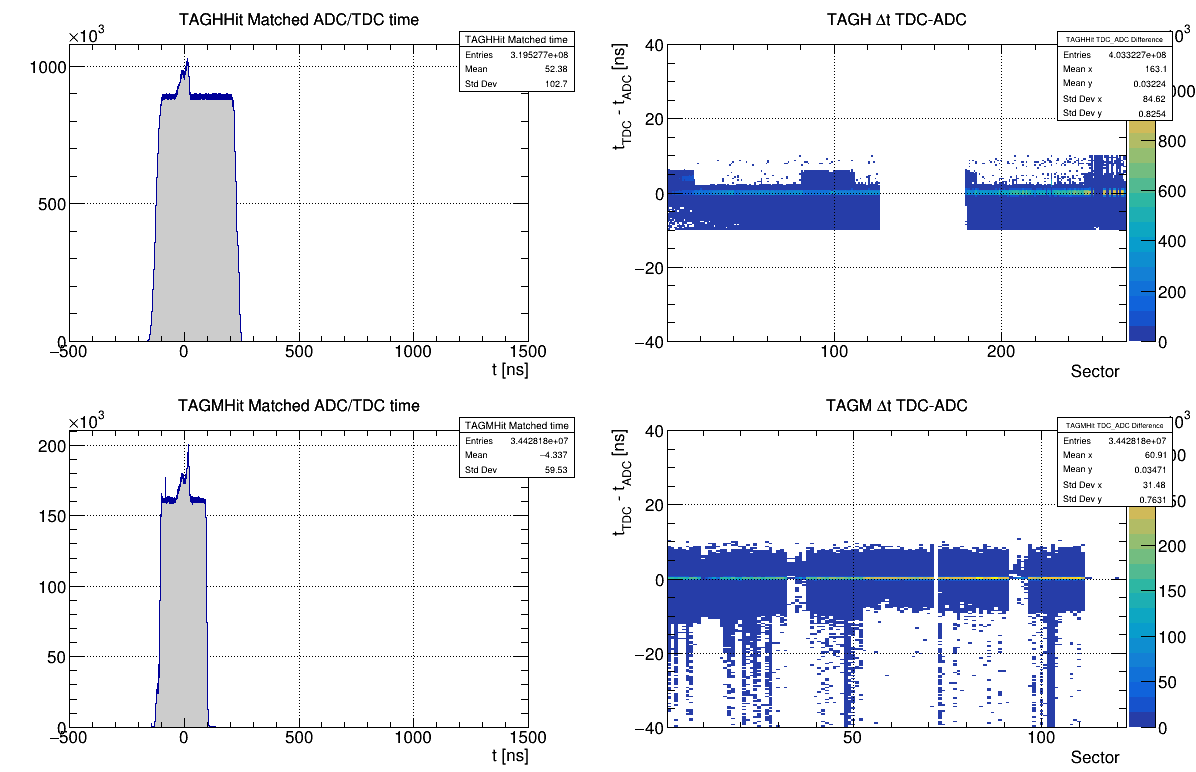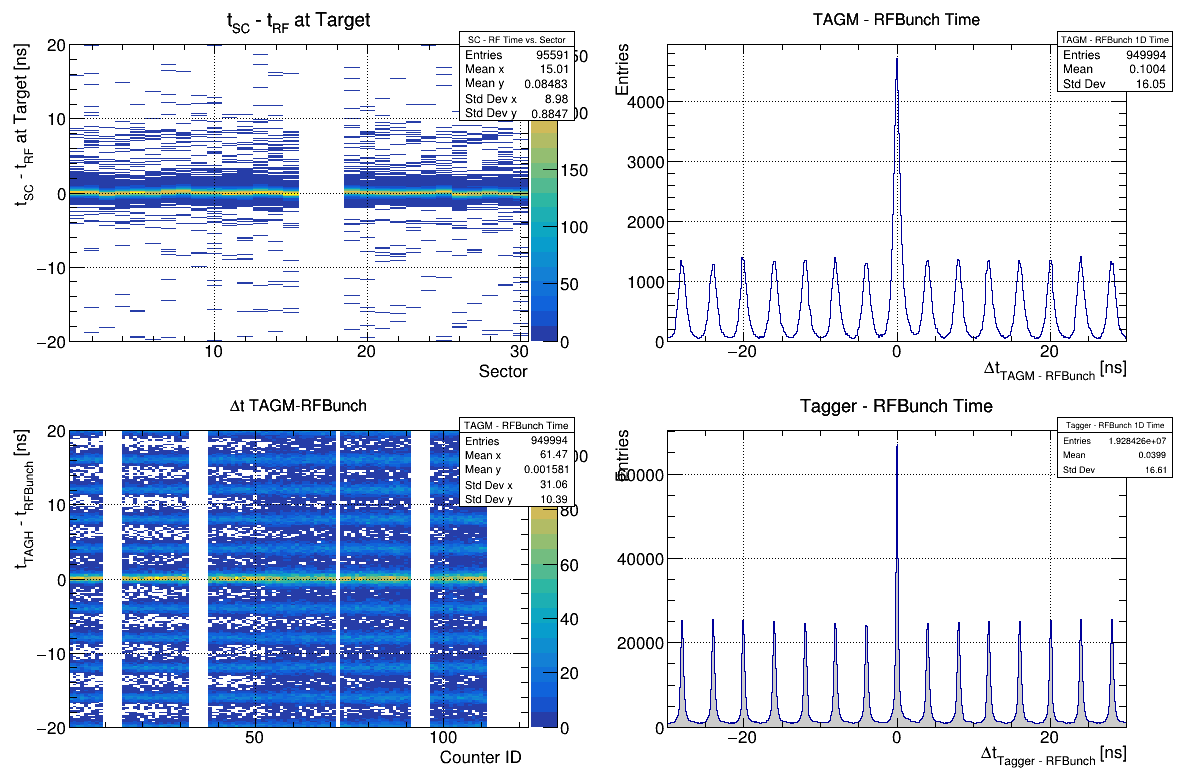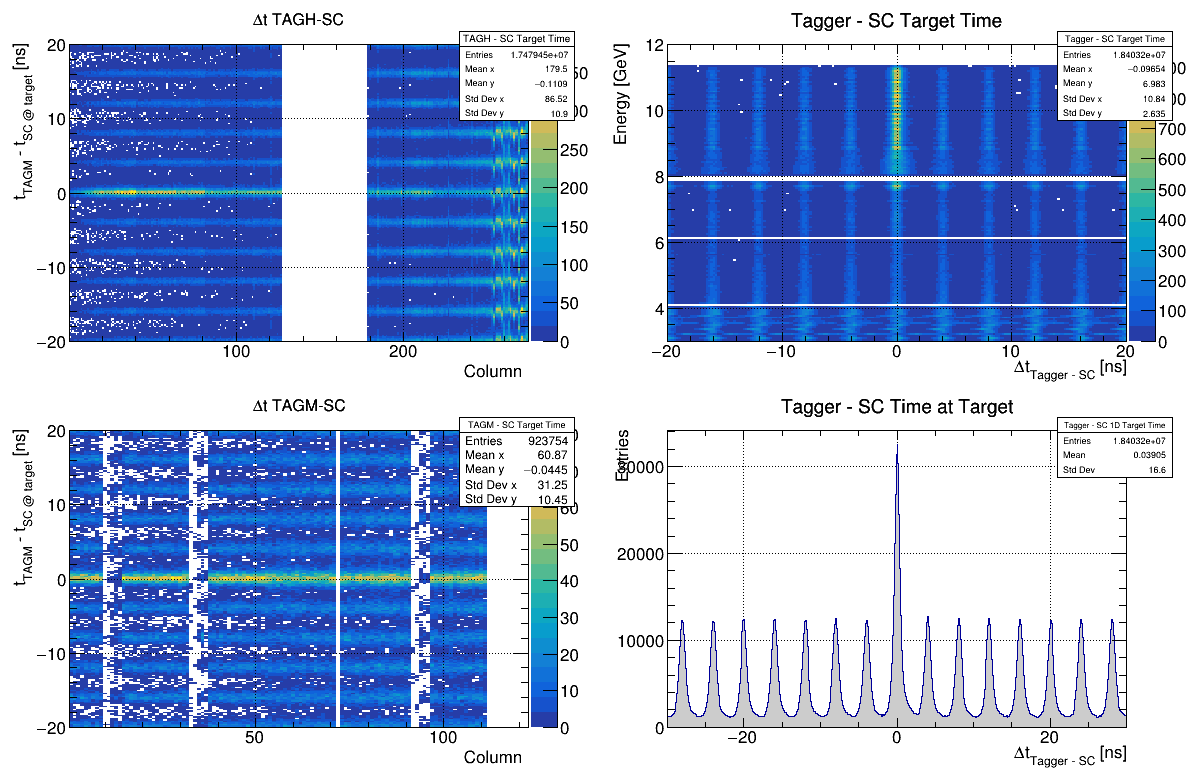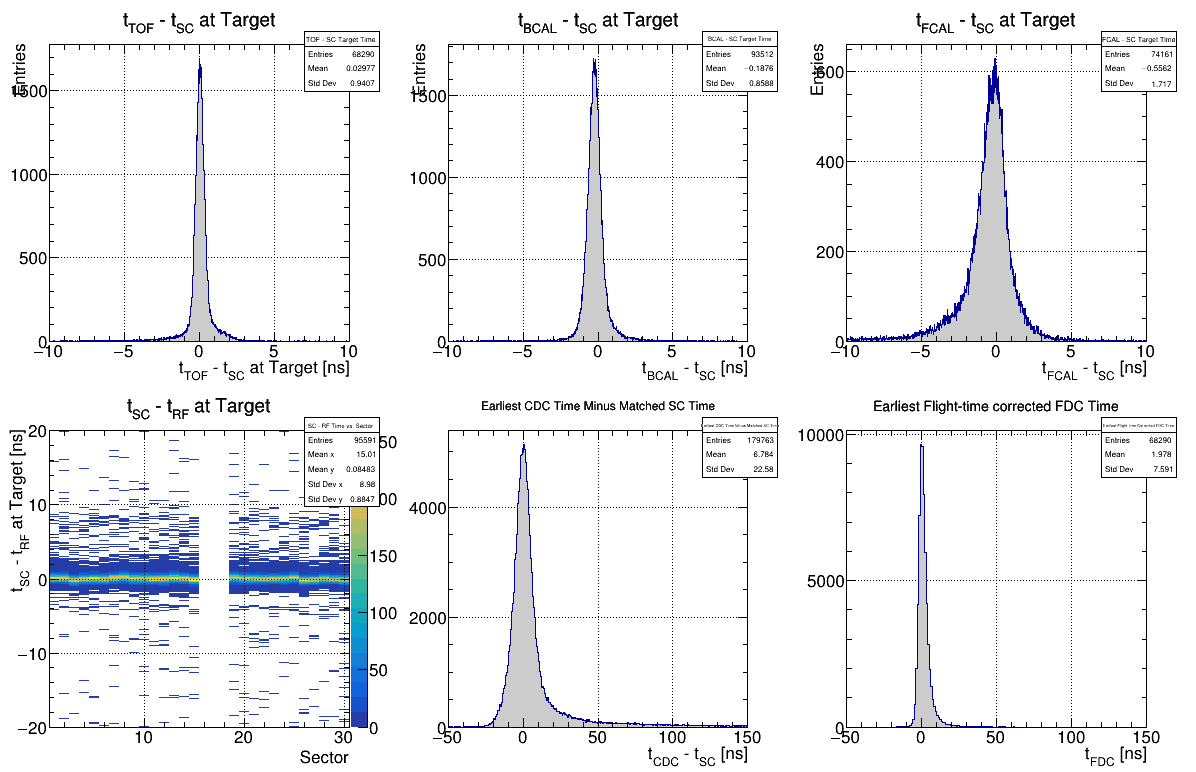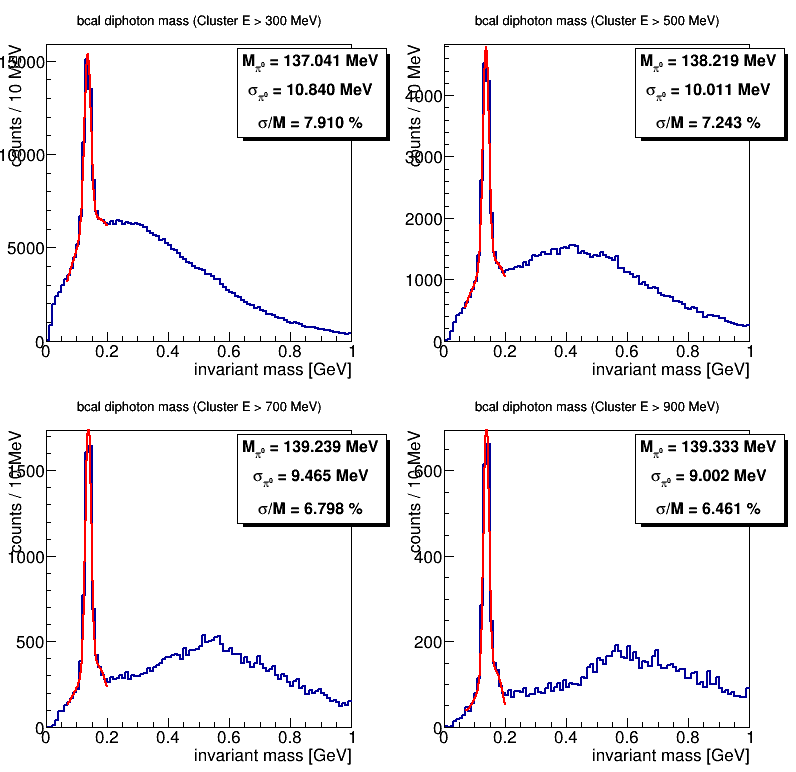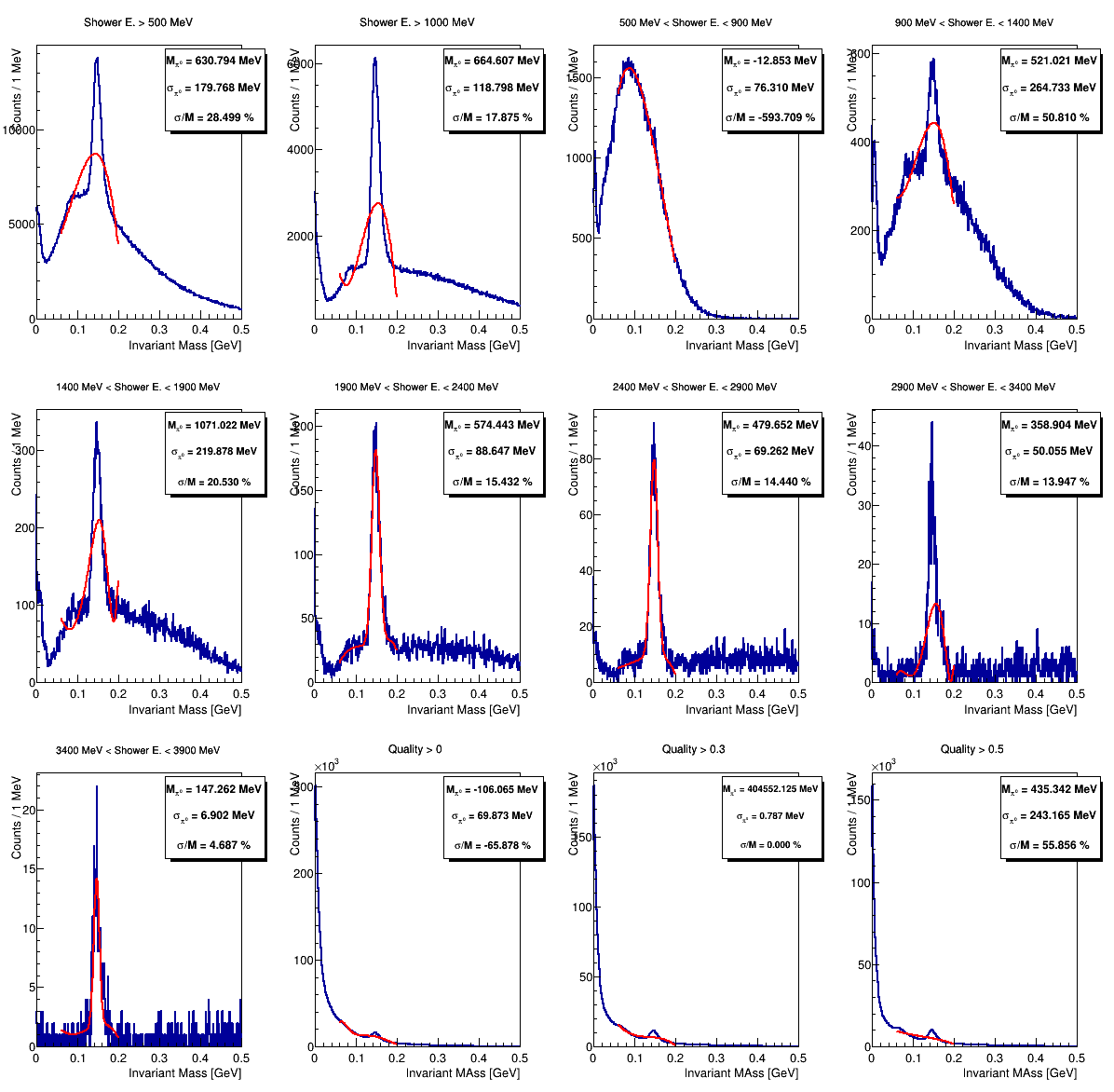Offline Monitoring Data Validation PrimEx
This page contains the procedure for checking if PrimEx-η production runs are of good quality and can be used for physics analysis. This page is a work in progress and should not (yet) be used as a reference
Contents
Run Periods
- RunPeriod-2019-01 Validation (PrimEx-η Phase I)
- RunPeriod-2021-08 Validation (PrimEx-η Phase II)
- RunPeriod-2022-08 Validation (PrimEx-η Phase III)
Procedure
For each production run, do the following:
- Use PlotGrader and the guidelines below to label your plots as good or bad.
- If in doubt, add a comment and label as bad.
- If you have questions about the plots, ask your expert for help.
- For questions about the process, email Naomi.
- When you have finished, update this table, notify Amy and Naomi, and let your expert know that it is time for them to check any 'bad' plots.
Expert Actions
- Certify that each subsystem is okay
- Set run status in RCDB based on monitoring results
- (script provided)
Run Statuses
- -1 - unchecked
- 0 - rejected (not physics-quality)
- 1 - approved
- 2 - approved long/"mode 8" data
- 3 - calibration / systematic studies
Checklist
Example Monitoring Spreadsheet (template, incomplete)
General Notes
- Reference runs are listed for each target type
- Be Empty: 110453 (left out of monitoring launches 01-11)
- Be Full: 110551
- He Empty: 111917
- He Full: 111884
Expert list
Experts should update the table as tasks are completed
| Subdetector | Plots | Instructions | Expert(s) |
|---|---|---|---|
| BCAL | Good | Good | Mark Dalton, Zisis Papandreou, Igal Jaegle |
| CCAL | Good | Good | Drew Smith |
| CDC | Good | Good | Naomi Jarvis |
| FCAL | Good? | Good? | Mark Dalton, Malte Albrecht, Igal Jaegle |
| FDC | Good | Good | Lubomir Pentchev |
| PS | Good | Good | Alex Somov, Olga Cortes |
| SC | good, with one example showing issues | done | Beni Zihlmann |
| TAGH | Good | Good | Alex Somov, Bo Yu |
| TAGM | Good | Good | Richard Jones, Ellie Prather |
| TOF | look good | done | Paul Eugenio, Beni Zihlmann |
| RF | Good | Good | Sean Dobbs, Beni Zihlmann |
| Timing | Good | Good | Sean Dobbs |
| Analysis | Good | Good | Igal Jaegle |
BCAL
BCAL Notes
The BCAL is used to measure the energy and time of showers.
The energy is vital for the neutrals. But it’s also used for charged particles to do PID.
CCAL
- Check Occupancy - Reference: [ link ]
CCAL Notes
The CCAL is used to measure the Compton scattering cross section. It detects either the Compton-scattered photon or recoil electron in coincidence with the other particle being detected by the FCAL. Particles detected by the CCAL have a small scattering angle (<0.8deg), and therefore the rate in the CCAL is very high. For initial monitoring, check the occupancy plot. There will always be a 2x2 square hole corresponding to the beam hole. When the beam is on and the target is filled, the modules closest to the center will have higher counts. Check that there are no modules with zero counts and that there are no modules with abnormally high counts.
CDC
CDC Reference Plots
CDC Notes
General notes on empty/absent Be target runs: the statistics are really low. Mark these runs good unless there is something odd or bad that isn't due to lack of statistics.
CDC Occupancy: There should be a uniform decrease in intensity from the center of the detector outward. Random white cells scattered throughout occur when not enough data were collected, eg empty target runs, trigger tests or no beam. Several contiguous white, dark blue or bright yellow cells which don't match the neighboring cells are a problem.
Time-to-distance: 𝛿, the change in length of the LOCA caused by the straw deformation, is
plotted against the measured drift time, t drift . The color scale indicates the distance of
closest approach between the track and the wire, obtained from the tracking software.
The red lines are contours of the time-to-distance function for constant drift distances
from 1.5 mm to 8 mm, in steps of 0.5 mm. They should lie over the top of the dark blue contour lines separating the colour blocks.
For the plot of residuals vs drift time, the mean should be less than 15um and the sigma should be less than 150um.
dE/dx: At 1.5GeV/c the fitted peak mean should be within 1% of 2.02 keV/cm.
Efficiency: The efficiency should be 0.98 or higher at 0cm DOCA, gradually fall to 0.97 at approximately 0.5mm and then more steeply through 0.9 at approximately 0.64cm.
FCAL
- Check Occupancy - Reference: [ link ]
FCAL Notes
Is used for neutral particle detection and pion identification.
Check Occupancy:
For monitoring purposes, the occupancy of the detector should be checked for every run once - so this is only needed for the first ever monitoring launch per run period.
The goal is to find any blocks that do not deliver a signal for each run, these must be made dead channels in the Monte Carlo simulation for that specific run. Watch out for individual blocks as well as groups of 16 channels in a 4x4 orientation, which indicates a faulty fADC.
FDC
- Check Package 1 Occupancy - Reference: [ link ]
- Check Package 2 Occupancy - Reference: [ link ]
- Check Package 3 Occupancy - Reference: [ link ]
- Check Package 4 Occupancy - Reference: [ link ]
FDC Notes
There are two HV sectors, in Package 2 cell 6 (28 wires) and Package 3 cell 4 (20 wires), that are always OFF and seen in the occupancy plots as empty sectors. There are also strips with lower or no efficiency that are always there, mostly in Package 3 and 4 (see the reference plots), which also normal. What is not normal are groups of wires (of the order of 8 to 24 wires) that are noisy. They will show as brighter stripes in the occupancy. The problem is that they may lock the F1TDCs. This happened several times in the past years. In general, look for groups of channels that are overactive or have lower efficiency.
The reference plots show pseudohits, generated from the track reconstruction. If you find an abnormality, it would be helpful to check 2 more histograms to find the underlying cause - 'FDC Hit Occupancy' will show if any channels are missing, and 'HLDT Drift Chamber Timing' (bottom right plot) will show TDC time-shifts.
PS
- Check Occupancy - Reference: [ link ]
- Check Timing Alignment - Reference: [ link ]
- Check PS Pair Energy - Reference: [ link ]
PS Notes
PS Occupancy: PS Occupancy (bottom) should be fairly flat with a couple bad channels. PSC Occupancy (top) should have similar rates in TDC and ADC, with the same shape as the reference histogram.
PS Timing: All plots should be centered at zero. The right column reflect the tagger energy, the bottom right is empty (should be updated?).
PS Pair Energy: Should have similar triangle-like shape as the reference.
SC
- Check Occupancy - Reference: [ link ]
- Check Recon. SC 1 - Reference: [ link ]
- Check Recon. SC 2 - Reference: [ link ]
- Check Recon. SC Matching - Reference: [ link ]
SC Notes
Occupancy plots: look for gaps indicative of missing counters. Reference plot for Be target is an example of some missing counters, other targets show all counters active
SC1: look for gaps in 2D histogram (missing counters), top middle dE/dx protons are seen (bending curve downwards between 0 and 1)
SC2: 1D histograms of time differences (bottom row) need to peak at zero
SC Matching: track SC match rate (bottom middle 1d hist) flat-ish curve above 80%
TAGH
TAGH Notes
Tagger occupancy: TAGM - Generally the fADC and TDC occupancies should be similar and mostly flat, with maybe a small increase in rates with column number. There can be a small step in the TDC occupancy. TAGH - expect the choppy pattern in the reference image, which reflects the varying size of the different counters, and a steep increase at large counter number.
TAGH Hits 2: This plot is complicated - the main thing to look for is the time(TDC)-time(ADC) vs. channel plot to be centered around zero. Keep an eye out for any extra or unusual dead channels.
TAGM
TAGM Notes
Generally both distributions should be centered near zero. There is some variation in intensity due to the shape of the photon beam energy dependence (coherent peak) and the inefficiency of some of the channels.
TOF
- Check Occupancy - Reference: [ link ]
- Check TOF Matching 1 - Reference: [ link ]
- Check TOF Matching 2 - Reference: [ link ]
TOF Notes
Occupancy plot: look for "gaps" indicative of missing counters
Matching TOF Hits 1 (Time-Based Tracks): X and Y (rightmost plots) distributions should be centered close to zero (vertical)
TOF matching rate (1D histograms): There should be regions of larger than 80%, gaps in 2D histograms are indicative of wrong timing calibrations between ADC and TDC
RF
- Check Timing Offsets - Reference: [ link ]
RF Instructions
Should be centered around zero.
Timing
- Check HLDT Calorimeter Timing - Reference: [ link ]
- Check HLDT Drift Chamber Timing - Reference: [ link ]
- Check HLDT PID System Timing - Reference: [ link ]
- Check HLDT Tagger Timing - Reference: [ link ]
- Check HLDT Tagger/RF Align 2 - Reference: [ link ]
- Check HLDT Tagger/SC Align - Reference: [ link ]
- Check HLDT Track-Matched Timing - Reference: [ link ]
Timing Notes
Note that the relative size of peaks can change between different running conditions.
- Calorimeter Timing - The right two plots aren't aligned at zero because not all corrections are currently applied. If there is a 32 ns shift in part of this data, please note this.
- Drift Chamber Timing - In each case, the main peaks should line up at zero, but often have other structures. Ignore the first few bins of the lower left plot (they mostly say something about the noise in the detector). There can be 32 ns shifts in the lower right plot.
- PID System Timing - Nothing to note yet.
- Tagger Timing - The signal to background levels of the left two plots depend on the electron beam current.
- Track Matched Timing - Some overlap here with the tracking timing. The new plots should be centered at zero.
- Tagger/RF Timing - Look for the nice "picket fences" on the right two plots, and that in the bottom left plot each channel peaks at zero.
- Tagger/SC Timing - Should be similar to Tagger/RF Timing but with larger resolution.
Analysis
- Tracking 1 - [ link ]
- Tracking 3 - [ link ]
- Check BCAL pi0 - Reference: [ link ]
- Check FCAL pi0 - Reference: [ link ]
Analysis Notes
Generally in these plots, there will be a difference between diamond and amorphous radiator running. Should probably add some references for non-diamond plots.
- Tracking 1 - Note the spikes in the upper right plot are because we have 4 hypotheses fit to a track by default. The lower left plot does have a peak at zero.
- Tracking 3 - All four plot should have the pion band around 2keV/cm. Only the top left one should have an additional banana-shaped band for the protons.
- Check BCAL pi0 - The fitted peak should near at the correct pi0 mass of 135 MeV.
- Check FCAL pi0 - The fitted peak should near at the correct pi0 mass of 135 MeV.
- Note that these yields are sensitive to the tagger range used! This changes for different beam current settings.
